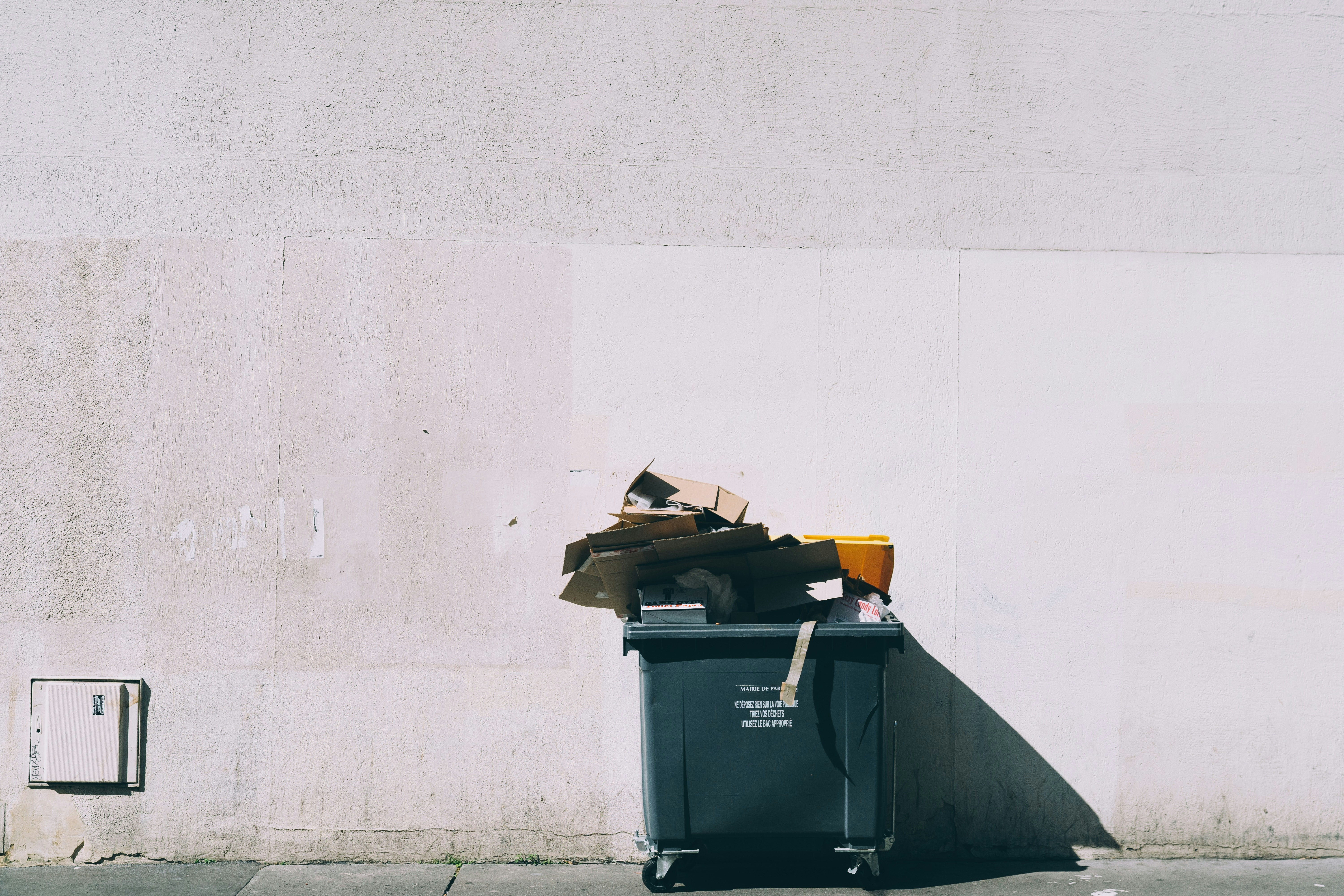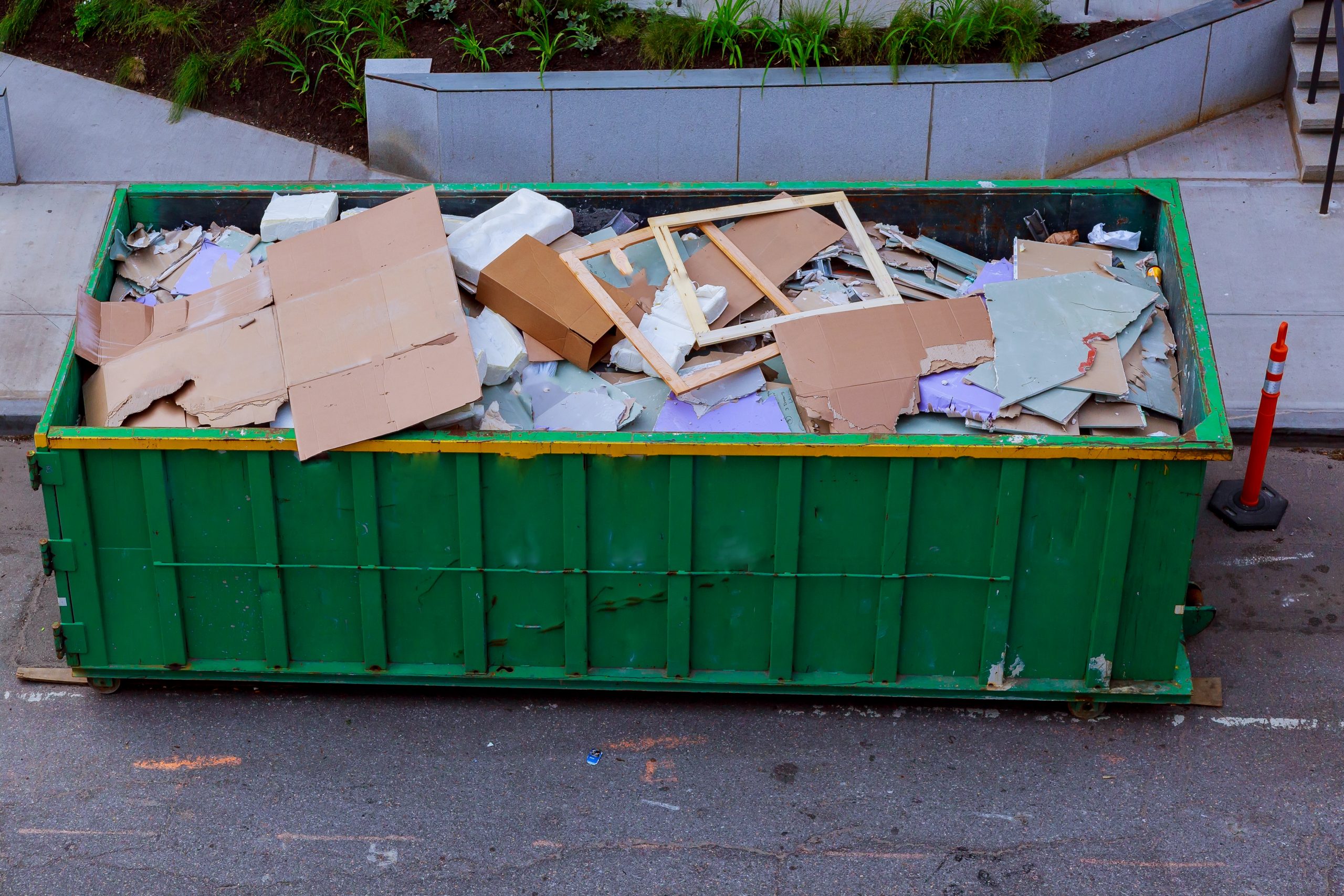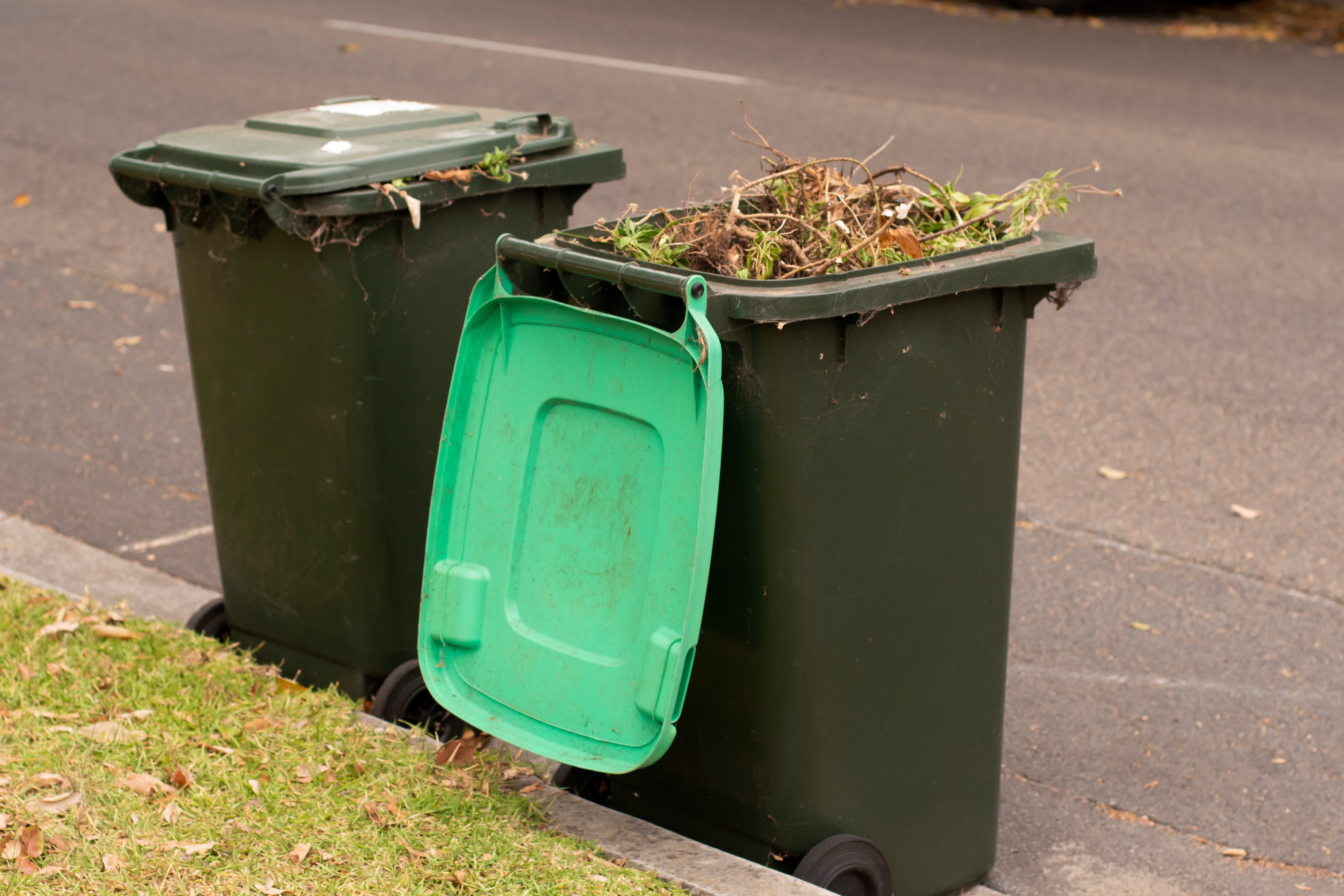
What is Green Waste: Everything You Need To Know About Gardening Waste
Landscaping and gardening have a way of transforming our outdoor spaces. However, from fallen leaves and clippings to pruned branches and discarded plant materials, a significant amount of waste is generated in the process of creating and maintaining these stunning landscapes.
The question then becomes: What happens to all this green waste? While it might be a small part of the waste you may produce, green waste is extremely important to both consider and dispose of properly. In this post, we discuss everything you need to know about green waste, from its environmental impact of improper disposal and shed light on the benefits of responsible waste management.
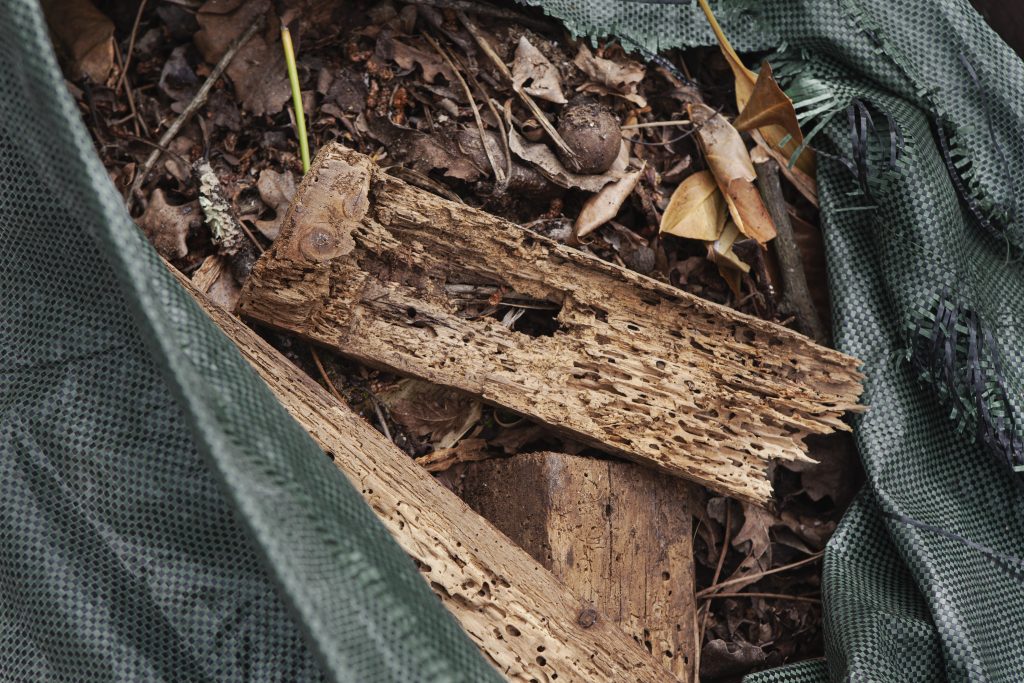
What Exactly Is Green Waste?
Green waste refers to a wide range of organic materials that are biodegradable and produced when landscaping and gardening. This includes yard trimmings, pruned branches, weeds, flowers, and fruits or vegetables from gardens. It is important to note that green waste should not include materials such as plastic bags, soil, or rocks.
Read More: Understanding the Different Types of Waste that Can be Disposed of in a Skip Bin
Why Is Proper Disposal Important?
Proper disposal of green waste is crucial for several reasons. Put simply, green waste is biodegradable. This means that they decompose with the help of bacteria. While this natural decomposition process may not initially appear concerning, it becomes problematic when green waste finds its way into regular landfills.
When green waste ends up in landfills, it undergoes decomposition. During this process, significant amounts of methane and other greenhouse gases are released into the atmosphere. Methane, in particular, is a potent greenhouse gas that contributes to climate change.
Additionally, green waste also produces a liquid byproduct called leachate. Leachate is formed as water percolates through the decomposing organic matter, picking up various contaminants along the way. If not managed appropriately, this leachate can pollute waterways and groundwater if not managed appropriately.
Thus, the importance of proper green waste disposal cannot be overstated. By adopting proper disposal practices for green waste, we can significantly reduce the amount of waste sent to landfills, leading to a decrease in carbon emissions and minimising the potential pollution of water resources.
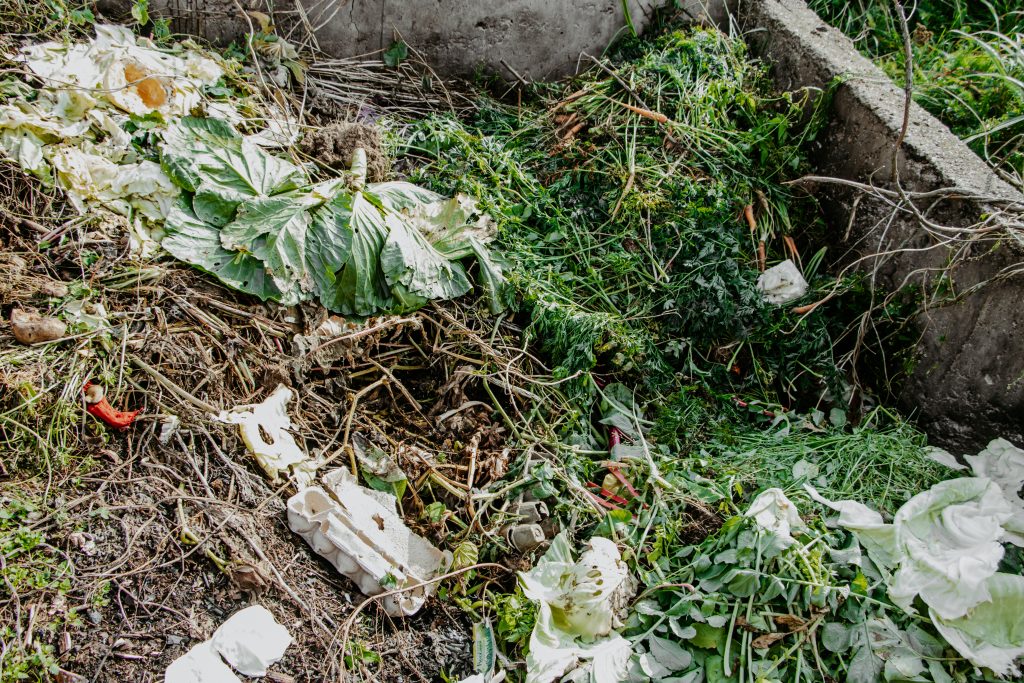
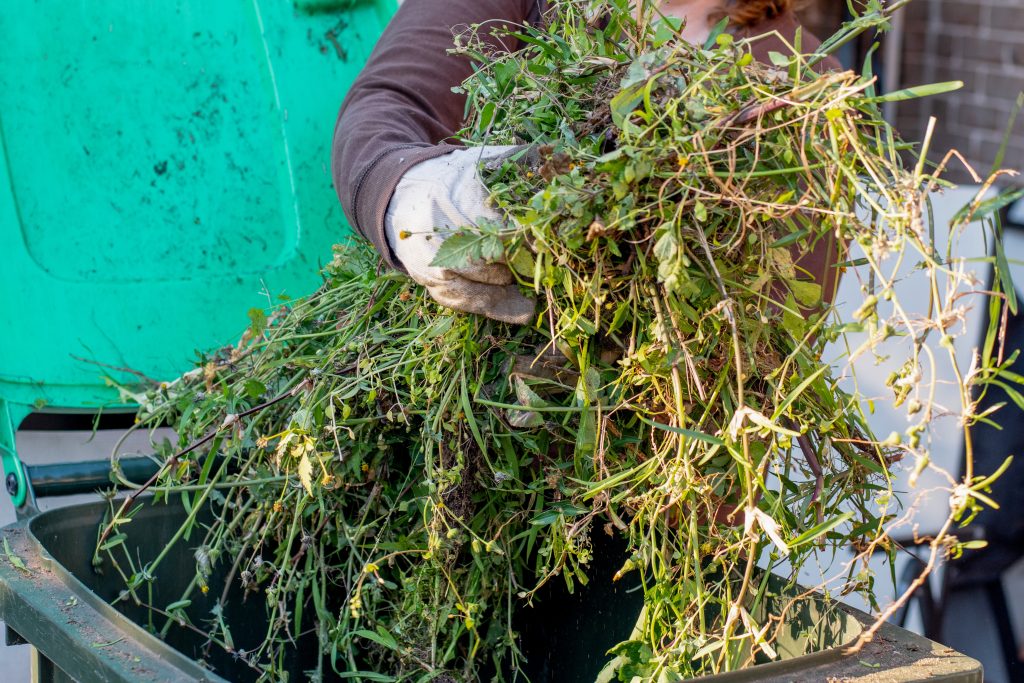
Identifying and Sorting Green Waste
To effectively manage green waste, it is essential to accurately identify and sort out the materials. In doing so, you can ensure that green waste is appropriately processed and disposed of in the most sustainable manner.
By recognising the organic materials that constitute green waste and differentiating between compostable and non-compostable items, you can channel these materials into the appropriate disposal methods.
Composting
Differentiating between compostable and non-compostable waste is a crucial step in proper waste management. Compostable green waste refers to materials that can be broken down and transformed into nutrient-rich fertiliser through composting methods. These materials are typically derived from plants and are biodegradable in nature. Examples of compostable green waste include:
- Vegetable and fruit scraps
- Egg Shells
- Coffee grounds
- Plant trimmings
- Turf and Soil
- Wood such as bark, branches and twigs
Reuse and Repurpose
In addition to composting and recycling, another effective way to manage green waste is through reuse and repurposing. By finding creative ways to give green waste a second life, we can minimise waste generation and reduce our reliance on external resources.
- Chipping and Mulching: Tree branches and pruned limbs can be chipped into small pieces using a wood chipper. The resulting wood chips can then be used as mulch in gardens, landscapes, and around trees.
- Firewood and Biomass: Larger tree branches and pruned limbs can be repurposed as firewood.
- Natural Mulch: Fallen leaves, another common type of green waste, can be used as a natural mulch in gardens and landscapes. By collecting and spreading a layer of leaves around plants, the leaves act as a protective barrier, conserving moisture, preventing weed growth, and improving soil quality.
- Creative DIY Projects: Green waste materials can also inspire creative do-it-yourself (DIY) projects. For example, pruned branches can be transformed into garden stakes, trellises, or decorative elements for landscapes.
Skip Bin Green Waste Collection:
In situations where the volume of green waste is too large to manage through composting or reuse, skip bin green waste collection can be an effective solution. Skip bins are large containers that are specifically designed for waste collection, providing a convenient and efficient method to manage substantial amounts of green waste.
Skip bins offer several advantages for green waste disposal, including:
- With a range of sizes to choose from, skip bins allow for the collection of significant quantities of organic materials, accommodating the needs of large landscaping projects, garden renovations, or large-scale tree pruning.
- Skip bin green waste collection ensures proper containment and transportation of the waste.
- Skip bin green waste collection offers convenience and saves time and effort. Instead of making multiple trips to the landfill. Once filled with green waste, it is then collected and transported by waste management professionals, saving you the hassle and labour associated with handling and transporting the waste yourself.
- Skip Bins are also a sustainable and responsible form of green waste removal. Skip bin companies, like Cheapa Skips, are dedicated to promoting environmentally friendly practices and ensuring that green waste is handled responsibly throughout the waste removal process.
Read more: Maximising Your Skip Bin Rental: Tips For Efficient Placement
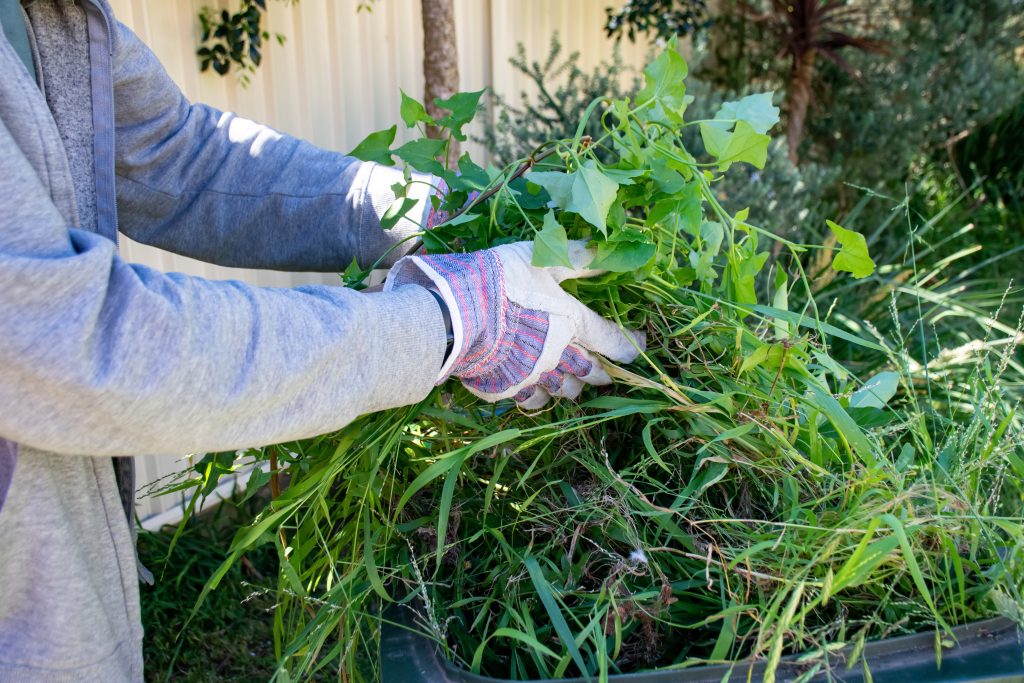
Embracing Responsible Green Waste Disposal with Cheapa Skips
Ultimately, green waste in inevitable. However, the key lies in how we manage and dispose of this green waste to minimise its impact on the environment. At Cheapa Skips, we are committed to providing sustainable and responsible solutions for green waste disposal.
With our comprehensive skip bin services, we offer a convenient and efficient way to handle large volumes of green waste. Our skip bins are specifically designed to accommodate various types of organic materials, including branches, leaves, grass clippings, and plant-based kitchen scraps. Get in touch to learn more!


